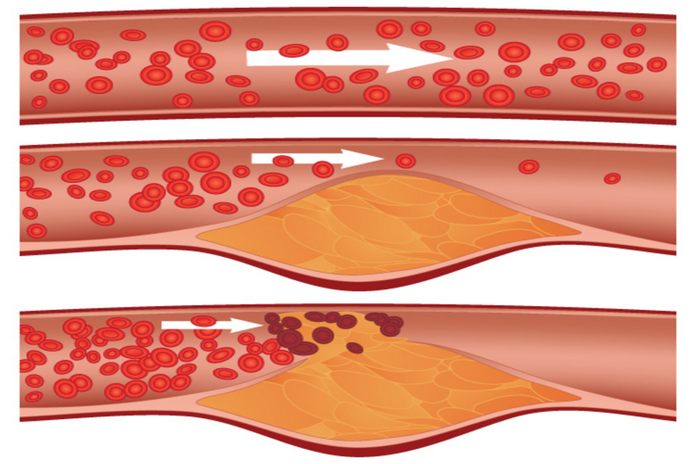Definition and facts about high cholesterol
Cholesterol is a type of waxy substance, and our bodies need this cholesterol to make new cells. However, the higher amounts of cholesterol in the body may cause problems and affect the normal functioning of the body systems. High cholesterol or medically known as hypercholesterolemia is a form of hyperlipidaemia (high blood lipids) which indicates the presence of high levels of cholesterol mostly LDL in the blood. The liver produces cholesterol naturally to form some hormones, cell membranes, and vitamin D. Cholesterol is a lipid, which is insoluble in water, that’s why the liver makes lipoproteins for the transportation of cholesterol in the body. With the help of lipoproteins, cholesterol travels in the blood to reach different tissues and organs.
Lipoproteins are made from proteins and fats combined in a molecule to help the transportation of cholesterol. Lipoproteins are of many types, but the significant types are low-density lipoproteins (LDL) and high-density lipoproteins (HDL). LDL lipoproteins are known as bad cholesterol as they accumulate in the arteries, and their exceeding amounts in the blood cause various health problems. In contrast, HDL lipoproteins are known as good cholesterol as they carry cholesterol from the tissues to the liver and do not cause accumulation of lipids in the blood.
The accumulation of LDL in the arteries leads to the blockage of arteries by the formation of plagues, thus causing atherosclerosis. Atherosclerosis leads to many heart problems as the walls of the arteries become hard as they are working extra due to the blockage. The walls of the arteries also lose their elasticity, thus affecting the pumping of blood.
The risk of heart diseases increases if you have high cholesterol in your blood. Heart diseases are the leading cause of death all over the world. High cholesterol in your blood also raises the chances of getting a stroke, which is also a leading cause of death.
Most of the people do not even recognize that they have high cholesterol or hypercholesterolemia as there are no typical symptoms of this disease. The high cholesterol levels mostly go unregistered in many patients, but blood tests can indicate the presence of high blood cholesterol. For this reason, the doctors recommend having a regular blood analysis.
The main reason for high cholesterol in the blood is the consumption of too many fatty foods over a long period. Smoking also increases the risks of having higher cholesterol levels in your blood.
According to many studies, certain ethnicities have higher chances of attaining high cholesterol. For example, Hispanic people are more prone to attain high cholesterol as compared with non-Hispanic whites. Asians are also having higher risks of getting high cholesterol in their lifetime.
Our body does not necessarily need the cholesterol for the formation of vitamin D, cell membranes and performing other body functions. Our bodies are capable of producing enough cholesterol through the liver to meet our needs and to maintain normal body functions. So the consumption of cholesterol is not necessarily crucial for humans.

Eating foods rich in HDL or high-density lipoproteins, our body can lower the amounts of bad cholesterol, i.e. LDL in the blood. So avoiding the use of saturated fats in the diet can decrease the amount of bad cholesterol in the body.
Studies also show that the more extended presence of high cholesterol levels in the body leads to more chances towards the development of heart diseases. People having high cholesterol in their blood for more than ten years have double risks of getting heart diseases as compared to others having high cholesterol for less than ten years.
Adults more than the age of 20 years are at high risk of getting high cholesterol. According to researchers from all over the world, one person out of every three persons older than 20 years has high cholesterol, and this number is increasing day by day.
Cholesterol is not only the issue of adults, but high cholesterol also affects the children. The kids having the issues of obesity, a family history of high blood cholesterol levels, and family history of heart attacks are at higher risks of getting high cholesterol.

